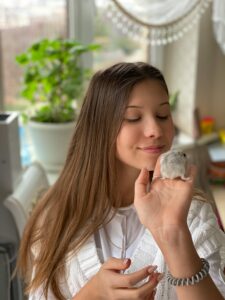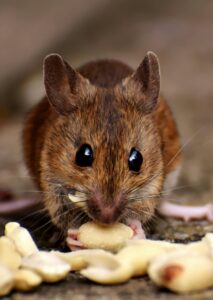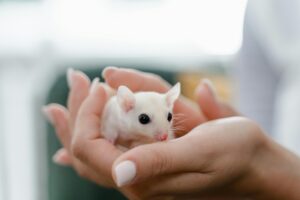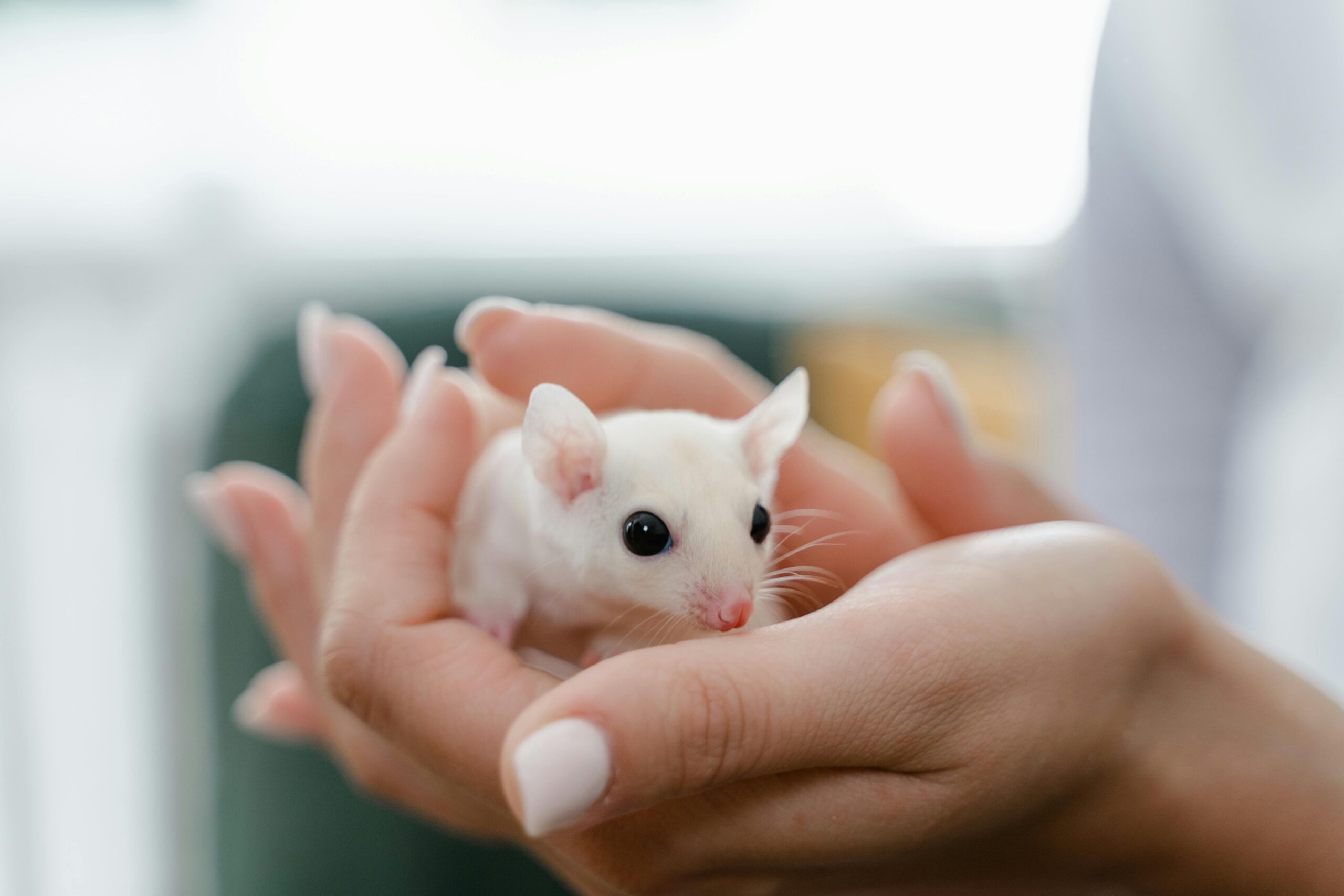Did you go home with a pregnant mouse from a pet store that failed to separate the male from the female mice or did your pet mice accidents have babies and you want to keep them? them.
Not to worry, you can be the best pet grandparent if you follow these steps on what to do when your pet mouse has babies.
Gestation, birth phase, and motherhood for mice are not stressful when compared to other animals and humans.
As a mouse pet owner, your routine will not take a drastic turn.
You will not be needed to babysit, spoon-feed, or bathe the new pups or mother at least not in the first few weeks.
What to Do When Your Domesticated Pet Mouse Has Babies:

It might be a joyous moment to see your pet mouse and her new pups or a moment of great worry if you don’t know how to be a pet grandparent.
If the latter is the case, we can make a beautiful experience to take care of your growing pet mouse family with these easy practical guidelines.
Separate The Parents:
If you did not bring home accidental pregnant mice but rather had the male and female in the same cage, immediately before or after the female has given birth, you should separate the male mice from the nursing mouse mother and her pups.
The male is separated so they don’t mate immediately with the female after a few weeks of giving birth.
They are also separated so they don’t cause any physical harm to the nursing mother and kids.
The male mice do not recognize the pups as offspring, they can likely exhibit cannibalism in extreme worst-case scenarios which should be avoided by all possible means.
Decide On How Many Pups To Keep:
While this step might be surprising, especially to new pet owners, it’s a very important decision to take for proper care of the parents and pups.
Pet ownership means responsibility and if you cannot be responsible for a litter of 6 excluding the parents, then it is best to look for a shelter home for the other pups.
All pets and animals require proper care, attention, provision of necessities, and safety.
It might be difficult to meet all these needs for 6 new pups and their parents without great stress and financial and other implications, especially for first-time pet owners.
Providing a new home after they are 4 to 6 weeks old and can live without total dependence on their mother is advised and should be highly considered so you can provide the best for the ones you can cater to.
Provide a suitable Shelter And Space:
After separating the male mice from the female and her pups, you should make sure there is little to zero interference or noise from any quarter.
They should be left alone to prevent any unwanted aggression or confrontation from a defensive mother who can easily turn her back on her pups if she can’t take care of them.
The babies at this point don’t need neither the mother except for food and clean water provision for the next 2 weeks after giving birth.
Their space should be free from noise to prevent any fear, agitation, and irritation from the mother.
Monitor The Mothers Behavior:
Mouse care for their offspring is different from most other domesticated animals.
They can stop nursing their pups when in distressed or feel threatened. This can lead to the death of the litter if not monitored and reported on time.
It is your duty as a mouse pet parent, to always monitor any abnormality in behavior and consult with a rodent-experienced veterinarian
Provide Adequate Nutrition:

The new mother mice needs more energy to be able to take care of her new litter.
All she might require you to do at this point is to provide her with nutritionally balanced meals and clean water.
For her to produce enough milk without much stress she needs to be fed on formulated mice foods, grains, fresh fruits and vegetables, properly boiled eggs, and mealworms.
Keep The Cage Clean:
The cage should be properly cleaa ned few days before she gives birth and should be avoided as much as possible except in emergency needs in her first two weeks of nursing her new pups.
Any item or soil material that can cause a spread of bacteria should be removed, cleaned, and disinfected due to the susceptibility of nursing mothers and young pups to diseases.
Be Cautious With The New Pups:

The smell of humans on the new pups may likely cause the mother to abandon or neglect the child and by extension the litter.
By all means possible avoid any direct contact and touch with the new pups.
In a situation where you must have contact or remove one of the pups for a close examination, always use a spoon or any retrievable material that can easily carry the pups.
If a pup is out of the nest, always wait for the mother to retrieve the pup back to her nest.
If a Nursing mother abandons her young pups that are less than 10 days old for any reason, you should immediately, as a matter of urgency seek the guidance of a rodent-experienced doctor else they die.
Prepare For Growth And Care For The Pups:
Your new pinkie mice won’t be little pups forever, they are going to grow and have their babies if not properly controlled.
During their early growth stage, they will develop furs on their skins, and some weeks after birth, their eyes will be open and they might probably want to leave the nest.
At this stage, ensure the cage is suitable for the young mice and their mother.
If it can not easily accommodate them, provision should be made for a bigger and more secure cage.
At the young adult stage, they will have unusual energy levels to be curious and hyperactive.
When they are fully adult, separation of the male and female mice should be carried out to avoid breeding and unwanted litters.

